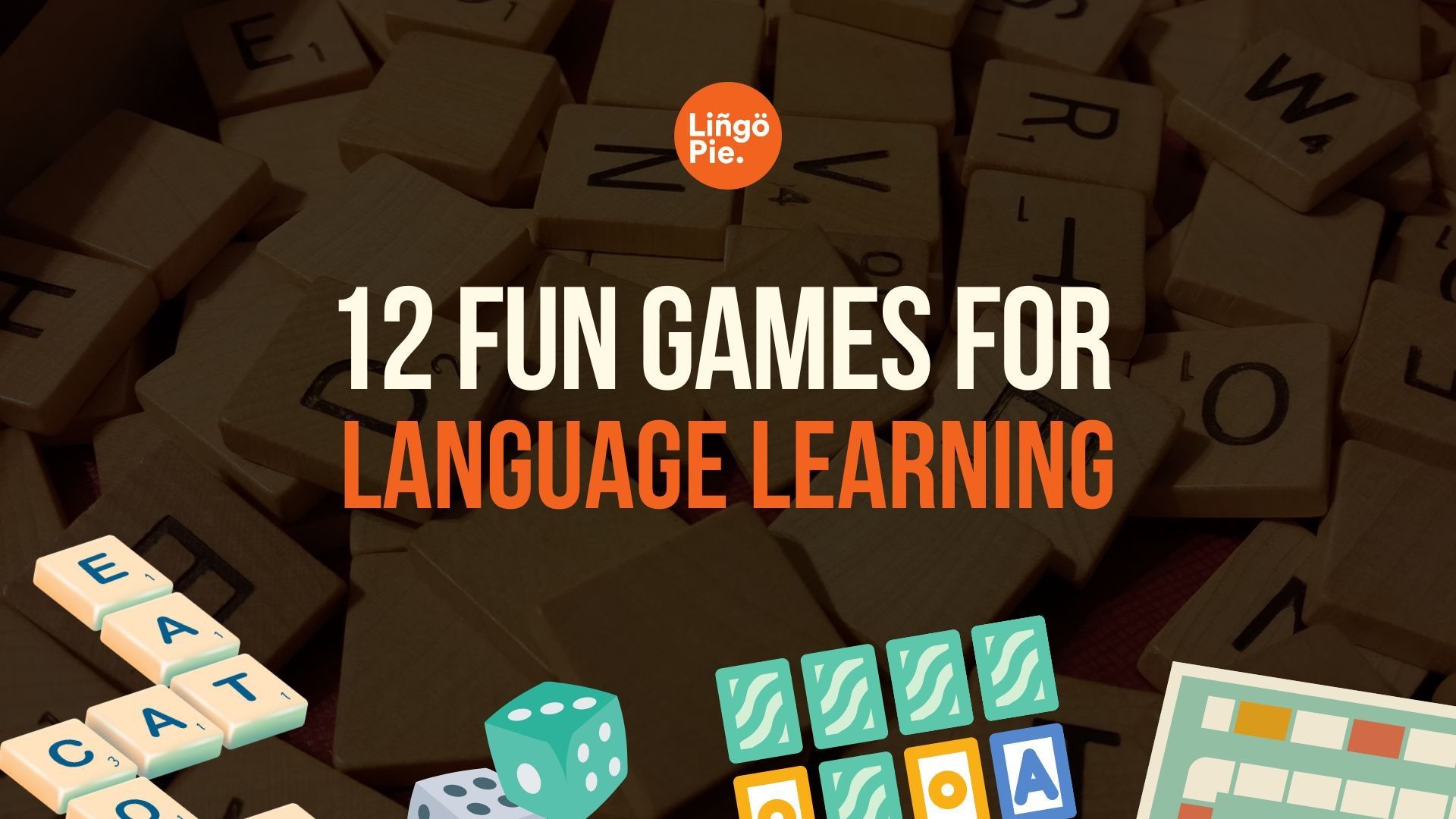Is It Hard To Learn Italian? Embarking on a new language journey can be both exciting and daunting. If you’re considering learning Italian, you might be wondering about the difficulty level. At LEARNS.EDU.VN, we believe that with the right approach and resources, anyone can successfully learn Italian. Discover practical tips, effective strategies, and valuable resources that can make your Italian learning experience enjoyable and rewarding, paving the way for you to communicate confidently and fluently in this beautiful language.
1. Understanding the Italian Language
Italian, a Romance language descended from Vulgar Latin, boasts a rich history and cultural significance. Spoken by approximately 67 million people primarily in Italy, it also holds official language status in Switzerland, San Marino, and Vatican City. Its melodic sounds and vibrant culture make it an appealing choice for language learners worldwide. Italian’s close ties to Latin and other Romance languages offer some advantages for English speakers, who may find similarities in vocabulary and grammar.
1.1. The Romance Language Family
Italian belongs to the Romance language family, which includes Spanish, Portuguese, French, and Romanian. These languages share common origins in Latin, the language of the Roman Empire. As a result, they exhibit similarities in vocabulary, grammar, and syntax. This linguistic connection can be advantageous for learners who already have experience with another Romance language, as they may find it easier to grasp Italian concepts and vocabulary.
1.2. History and Evolution of Italian
Modern Italian evolved from the Tuscan dialect, primarily spoken in the region of Tuscany, Italy. This dialect gained prominence during the Renaissance and was further standardized through literature, particularly the works of Dante Alighieri. However, it wasn’t until the 19th century, with the unification of Italy, that modern Italian became the national language. This evolution has shaped the language we know today, with influences from various regional dialects and historical periods.
2. Factors Influencing Language Learning Difficulty
The perceived difficulty of learning a new language is subjective and depends on various factors, including the learner’s native language, prior language learning experience, motivation, and learning style. While some languages may be more challenging for certain learners, Italian generally ranks among the easier languages for English speakers to acquire.
2.1. Native Language Influence
Your native language plays a significant role in how easily you can learn a new language. English speakers often find Romance languages like Italian relatively accessible due to shared vocabulary and grammatical structures. Many English words have Latin roots, which can aid in recognizing and understanding Italian words. For example, the English word “information” is similar to the Italian word “informazione.”
2.2. Prior Language Learning Experience
Previous experience learning other languages can also impact your ability to learn Italian. If you’ve already studied a Romance language like Spanish or French, you’ll likely have a head start due to the shared linguistic features. Even if you haven’t studied a Romance language, general language learning skills, such as understanding grammar concepts and memorizing vocabulary, can be transferred to Italian.
2.3. Motivation and Commitment
Motivation is a crucial factor in language learning success. Learners who are passionate about Italian culture, travel, or cuisine are more likely to stay motivated and persevere through challenges. Setting clear goals, such as being able to converse with native speakers or read Italian literature, can also provide a sense of purpose and direction. Consistent effort and dedication are essential for achieving fluency in any language, including Italian. LEARNS.EDU.VN is committed to supporting students in their learning process.
2.4. Learning Style and Resources
Everyone learns differently, so finding a learning style and resources that suit your preferences is essential. Some learners prefer traditional classroom settings, while others thrive in self-study environments using online courses, language learning apps, or textbooks. Experiment with different methods to find what works best for you. Additionally, consider incorporating authentic materials like Italian movies, music, and books to immerse yourself in the language and culture.
3. Advantages for English Speakers Learning Italian
English speakers have several advantages when learning Italian, primarily due to the linguistic similarities between the two languages. These advantages can make the learning process more efficient and enjoyable.
3.1. Shared Vocabulary
As mentioned earlier, English and Italian share a significant amount of vocabulary due to their common Latin roots. This shared vocabulary can make it easier for English speakers to recognize and understand Italian words. For example, the English word “family” is similar to the Italian word “famiglia,” and the English word “nation” is similar to the Italian word “nazione.” Recognizing these cognates can significantly reduce the amount of vocabulary you need to memorize.
3.2. Similar Alphabet
Both English and Italian use the Latin alphabet, which consists of 26 letters. While there are some differences in pronunciation and accent marks, the familiarity of the alphabet can make it easier for English speakers to read and write in Italian. This is in contrast to languages that use different writing systems, such as Chinese or Arabic, which can present an additional challenge for learners.
3.3. Basic Sentence Structure
Italian, like English, generally follows a subject-verb-object (SVO) sentence structure. This means that the order of words in a sentence is typically the same in both languages. For example, in English, we say “I eat pizza,” and in Italian, it’s “Io mangio pizza.” This similarity in sentence structure can make it easier for English speakers to construct grammatically correct sentences in Italian.
4. Potential Challenges in Learning Italian
While Italian offers several advantages for English speakers, there are also some potential challenges to be aware of. Understanding these challenges can help you prepare for them and develop strategies to overcome them.
4.1. Gendered Nouns
One of the most significant challenges for English speakers learning Italian is the concept of gendered nouns. In Italian, every noun is either masculine or feminine, and this gender affects the articles and adjectives that are used with the noun. For example, “il libro” (the book) is masculine, while “la casa” (the house) is feminine. Memorizing the gender of each noun can be tedious, but it’s essential for grammatical accuracy.
4.2. Verb Conjugation
Italian verbs are conjugated, meaning their form changes depending on the subject and tense. While English verbs also have some conjugation, Italian verb conjugation is more complex and involves more variations. Mastering verb conjugation is crucial for speaking and writing correctly in Italian. It requires understanding the different verb tenses and how they are used to express time and action.
4.3. Pronunciation Nuances
While Italian pronunciation is generally straightforward, there are some nuances that can be challenging for English speakers. For example, the double consonants in Italian are pronounced longer than single consonants, and the letters “c” and “g” have different pronunciations depending on the following vowel. Paying attention to these details and practicing pronunciation regularly can help you improve your accent and be understood more easily.
4.4. Subjunctive Mood
The subjunctive mood is a grammatical concept that expresses doubt, uncertainty, or subjectivity. While the subjunctive mood exists in English, it’s used less frequently than in Italian. Mastering the subjunctive mood is essential for expressing nuanced meanings and complex ideas in Italian. It requires understanding the different subjunctive tenses and how they are used in various contexts.
5. Effective Strategies for Learning Italian
To maximize your chances of success in learning Italian, it’s essential to adopt effective learning strategies. These strategies can help you stay motivated, learn efficiently, and achieve fluency.
5.1. Set Realistic Goals
Start by setting realistic and achievable goals. Instead of aiming to become fluent in Italian overnight, break down your learning journey into smaller, manageable steps. For example, you could aim to learn 10 new words per day, complete one grammar lesson per week, or watch one Italian movie per month. Celebrating your progress along the way can help you stay motivated and build confidence.
5.2. Immerse Yourself in the Language
Immersion is one of the most effective ways to learn a new language. Surround yourself with Italian as much as possible by listening to Italian music, watching Italian movies and TV shows, reading Italian books and articles, and conversing with native speakers. Even if you don’t understand everything at first, exposure to the language will help you internalize its sounds, rhythms, and patterns.
5.3. Use a Variety of Resources
Don’t rely on just one resource for learning Italian. Use a combination of textbooks, online courses, language learning apps, and conversation partners to get a well-rounded learning experience. Experiment with different resources to find what works best for your learning style and preferences. Supplement your formal studies with authentic materials like Italian newspapers, magazines, and blogs.
5.4. Practice Regularly
Consistency is key to language learning success. Set aside dedicated time each day or week to study Italian and practice your skills. Even if you can only spare 15-30 minutes per day, regular practice is more effective than cramming for hours on end. Use spaced repetition techniques to review vocabulary and grammar concepts at increasing intervals, which can help you retain information more effectively.
5.5. Find a Language Partner
Practicing with a native speaker or fellow learner can significantly improve your speaking and listening skills. Find a language partner through online language exchange platforms, local language meetups, or community centers. Regular conversations with a language partner can help you build confidence, improve your pronunciation, and learn colloquial expressions.
5.6. Focus on Communication
Don’t get too caught up in grammar rules and perfect pronunciation. Focus on communicating effectively and expressing your ideas clearly. Making mistakes is a natural part of the learning process, so don’t be afraid to speak up and try. The more you practice speaking, the more fluent and confident you’ll become.
6. Resources Available at LEARNS.EDU.VN
LEARNS.EDU.VN offers a wide range of resources to support your Italian language learning journey. Our resources are designed to cater to different learning styles and proficiency levels, ensuring that you have access to the tools and support you need to succeed.
6.1. Comprehensive Online Courses
Our online Italian courses cover all aspects of the language, including grammar, vocabulary, pronunciation, and culture. The courses are structured in a progressive manner, starting with the basics and gradually advancing to more complex topics. Interactive exercises, quizzes, and multimedia content are incorporated to keep you engaged and motivated.
6.2. Interactive Language Learning Apps
We offer a variety of interactive language learning apps that can help you practice your Italian skills on the go. These apps feature gamified lessons, personalized feedback, and adaptive learning algorithms that adjust to your individual needs. You can use the apps to practice vocabulary, grammar, pronunciation, and listening comprehension.
6.3. Cultural Immersion Programs
To enhance your language learning experience, we offer cultural immersion programs in Italy. These programs provide you with the opportunity to live and study in Italy, immerse yourself in the local culture, and practice your Italian skills in real-world situations. Our cultural immersion programs are designed to be both educational and enjoyable, allowing you to gain a deeper understanding of Italian language and culture.
6.4. Personalized Tutoring Services
For learners who prefer one-on-one instruction, we offer personalized tutoring services with experienced Italian teachers. Our tutors can provide you with customized lessons, personalized feedback, and tailored support to help you achieve your language learning goals. Whether you need help with grammar, pronunciation, or conversation skills, our tutors are here to assist you.
7. Integrating Italian into Your Daily Life
One of the most effective ways to learn Italian is to integrate it into your daily life. By incorporating Italian into your routine, you can reinforce your learning, stay motivated, and make progress towards fluency.
7.1. Listen to Italian Music and Podcasts
Make Italian music and podcasts a part of your daily commute, workout routine, or household chores. Listening to Italian music can help you improve your pronunciation, expand your vocabulary, and learn about Italian culture. Podcasts can provide you with engaging and informative content on a variety of topics, while also helping you improve your listening comprehension skills.
7.2. Watch Italian Movies and TV Shows
Set aside time each week to watch Italian movies and TV shows. Start with subtitles in your native language and gradually transition to Italian subtitles as your comprehension improves. Watching Italian movies and TV shows can help you learn colloquial expressions, understand cultural nuances, and improve your overall language skills.
7.3. Read Italian Books and Articles
Choose Italian books and articles that are appropriate for your reading level and interests. Start with simple texts and gradually progress to more complex ones as your vocabulary and grammar skills improve. Reading Italian can help you expand your vocabulary, improve your grammar, and develop your reading comprehension skills.
7.4. Cook Italian Recipes
Explore Italian cuisine by cooking Italian recipes. Follow Italian recipes online or in cookbooks, and try to use Italian ingredients and cooking techniques. Cooking Italian food can help you learn vocabulary related to food, cooking, and culture. It can also be a fun and rewarding way to immerse yourself in the Italian language and culture.
7.5. Label Your Surroundings
Label items around your home or office with their Italian names. This can help you learn new vocabulary and reinforce your memory of previously learned words. Use sticky notes or labels to identify furniture, appliances, and other common objects with their Italian equivalents.
8. Common Misconceptions About Learning Italian
There are several common misconceptions about learning Italian that can discourage potential learners. By addressing these misconceptions, we hope to encourage more people to embark on the journey of learning Italian.
8.1. “Italian is Too Difficult to Learn”
As we’ve discussed, Italian is generally considered one of the easier languages for English speakers to learn. While there are some challenges, such as gendered nouns and verb conjugation, these can be overcome with consistent effort and effective learning strategies. Don’t let the perceived difficulty of Italian deter you from giving it a try.
8.2. “You Need to Be Fluent to Visit Italy”
While knowing some Italian can enhance your travel experience in Italy, it’s not necessary to be fluent to visit the country. Many Italians, especially in tourist areas, speak English or other foreign languages. However, learning a few basic phrases in Italian, such as “Ciao” (hello), “Grazie” (thank you), and “Per favore” (please), can go a long way in showing respect and appreciation for the local culture.
8.3. “You Need to Be Gifted to Learn a Language”
Learning a language is a skill that can be developed through practice and dedication. While some people may have a natural aptitude for languages, anyone can learn Italian with the right approach and resources. Don’t let the belief that you’re not “gifted” in languages discourage you from pursuing your language learning goals.
8.4. “You Can Only Learn Italian in Italy”
While studying Italian in Italy can be a valuable and immersive experience, it’s not the only way to learn the language. There are many resources available online and in your local community that can help you learn Italian effectively. You can take online courses, use language learning apps, find a language partner, or join a local Italian club.
9. Success Stories from Italian Learners
To inspire you on your language learning journey, we’d like to share some success stories from Italian learners who have achieved fluency and enriched their lives through the Italian language.
9.1. Maria’s Story: From Tourist to Local
Maria had always dreamed of visiting Italy, but she felt intimidated by the language barrier. Before her trip, she decided to take an online Italian course at LEARNS.EDU.VN. With consistent effort and dedication, she quickly learned the basics of the language. During her trip to Italy, she was able to converse with locals, order food in restaurants, and navigate the streets with confidence. Her experience was so rewarding that she decided to continue studying Italian and eventually moved to Italy to work as a translator.
9.2. David’s Story: Connecting with Heritage
David grew up in the United States but had always felt a strong connection to his Italian heritage. He decided to learn Italian to connect with his family history and culture. He used a combination of textbooks, language learning apps, and conversation partners to improve his Italian skills. Eventually, he was able to communicate with his relatives in Italy, read Italian literature, and watch Italian movies without subtitles. Learning Italian helped him deepen his understanding of his heritage and strengthen his connection to his family.
9.3. Sarah’s Story: Career Advancement
Sarah worked in the tourism industry and wanted to improve her career prospects. She decided to learn Italian to better serve Italian-speaking tourists. She took a personalized tutoring program at LEARNS.EDU.VN and focused on learning vocabulary and phrases related to tourism. Her improved Italian skills helped her land a promotion at work and expand her professional network. Learning Italian opened up new opportunities for her and helped her achieve her career goals.
10. Embracing the Italian Language Learning Journey
Learning Italian can be a rewarding and enriching experience. While there may be challenges along the way, the benefits of learning Italian far outweigh the difficulties. By setting realistic goals, immersing yourself in the language, using a variety of resources, and practicing regularly, you can achieve fluency and open up a world of opportunities.
10.1. Start Today
Don’t wait for the perfect moment to start learning Italian. The best time to start is today. Even if you can only spare a few minutes each day, every little bit helps. Sign up for an online course at LEARNS.EDU.VN, download a language learning app, or find a language partner. Take the first step towards achieving your language learning goals.
10.2. Be Patient
Learning a language takes time and effort. Don’t get discouraged if you don’t see results immediately. Be patient with yourself and celebrate your progress along the way. Remember that every mistake is an opportunity to learn and improve.
10.3. Enjoy the Process
Learning Italian should be an enjoyable experience. Find ways to make it fun and engaging. Listen to Italian music, watch Italian movies, cook Italian food, and connect with other Italian learners. The more you enjoy the process, the more motivated you’ll be to continue learning.
10.4. Stay Connected
Stay connected with the Italian language and culture even after you achieve fluency. Continue reading Italian books, watching Italian movies, and conversing with native speakers. Join Italian clubs or organizations in your community, or plan a trip to Italy to immerse yourself in the language and culture.
Is it hard to learn Italian? Not with the resources available at LEARNS.EDU.VN! We’re here to support you every step of the way. Visit our website at LEARNS.EDU.VN, contact us via WhatsApp at +1 555-555-1212, or visit our office at 123 Education Way, Learnville, CA 90210, United States to learn more about our courses, programs, and services. Let us help you unlock the beauty and richness of the Italian language.
Frequently Asked Questions (FAQs) About Learning Italian
Here are some frequently asked questions about learning Italian to help you navigate your language learning journey:
- How long does it take to learn Italian?
The time it takes to learn Italian depends on various factors, including your learning pace, dedication, and previous language learning experience. On average, it can take anywhere from 600 to 750 hours of study to achieve a conversational level of proficiency. - Is Italian grammar difficult?
Italian grammar can be challenging, especially for English speakers who are not accustomed to gendered nouns and verb conjugation. However, with consistent effort and the right resources, Italian grammar can be mastered. - What are the best resources for learning Italian?
There are many excellent resources available for learning Italian, including textbooks, online courses, language learning apps, and conversation partners. LEARNS.EDU.VN offers a wide range of resources to support your Italian language learning journey. - How can I improve my Italian pronunciation?
To improve your Italian pronunciation, listen to native speakers, practice speaking regularly, and pay attention to the nuances of Italian sounds. You can also use pronunciation guides and online resources to help you refine your pronunciation skills. - Is it better to learn Italian in a classroom or online?
Whether it’s better to learn Italian in a classroom or online depends on your learning style and preferences. Classroom learning offers a structured environment and face-to-face interaction with a teacher and fellow learners. Online learning provides flexibility and convenience, allowing you to study at your own pace and on your own schedule. - How can I stay motivated while learning Italian?
To stay motivated while learning Italian, set realistic goals, celebrate your progress, find a language partner, and immerse yourself in the Italian language and culture. Connecting with other Italian learners can also provide support and encouragement. - What are the benefits of learning Italian?
Learning Italian offers numerous benefits, including the ability to communicate with millions of Italian speakers, explore Italian culture, enhance your career prospects, and boost your cognitive skills. It can also open up new opportunities for travel, education, and personal growth. - Is Italian a useful language to learn?
Yes, Italian is a useful language to learn, especially if you’re interested in Italian culture, history, or cuisine. It can also be beneficial for travel, business, and personal enrichment. - Can I learn Italian on my own?
Yes, you can learn Italian on your own, especially with the abundance of resources available online. However, it’s helpful to supplement your self-study with interaction with native speakers or fellow learners to improve your speaking and listening skills. - What should I learn first when learning Italian?
When starting to learn Italian, focus on the basics, such as the alphabet, pronunciation, basic vocabulary, and simple grammar rules. Master the fundamentals before moving on to more complex topics.
Remember, the journey of learning Italian is a marathon, not a sprint. Embrace the process, celebrate your progress, and enjoy the ride!
Unlock Your Italian Potential with LEARNS.EDU.VN
Ready to embark on your Italian language adventure? Visit LEARNS.EDU.VN today and discover a world of resources to help you achieve fluency. From comprehensive online courses to personalized tutoring, we have everything you need to succeed.
Don’t wait any longer! Take the first step towards unlocking your Italian potential and opening doors to new cultures, experiences, and opportunities. Contact us today:
- Address: 123 Education Way, Learnville, CA 90210, United States
- WhatsApp: +1 555-555-1212
- Website: LEARNS.EDU.VN
Start your Italian journey with LEARNS.EDU.VN and say “Ciao” to a world of possibilities!
<!–
Playing games with family and friends can be a great way to help you learn a language. Here you will learn the 10 best games to do so!
{width=305 height=305}
The blog for language lovers | Lingopie.com
Lorena Macedo
{width=1920 height=1080}](https://lingopie.com/blog/10-fun-language-learning-games-to-play-with-friends/)
<!–
Learning a new language is perhaps among the most popular New Year’s resolutions for many of us. While some people stick to it, others often struggle due to time constraints or limited budgets, putting their language goals on the back burner. But did you know that it’s not yet too
{width=305 height=305}The blog for language lovers | Lingopie.com
Milena Andrade
{width=1920 height=1080}](https://lingopie.com/blog/free-language-learning-websites-to-boost-your-studies/)
<!–
Learn how to do language exchange right with these effective tips!
{width=305 height=305}
The blog for language lovers | Lingopie.com
Betül Dağ

